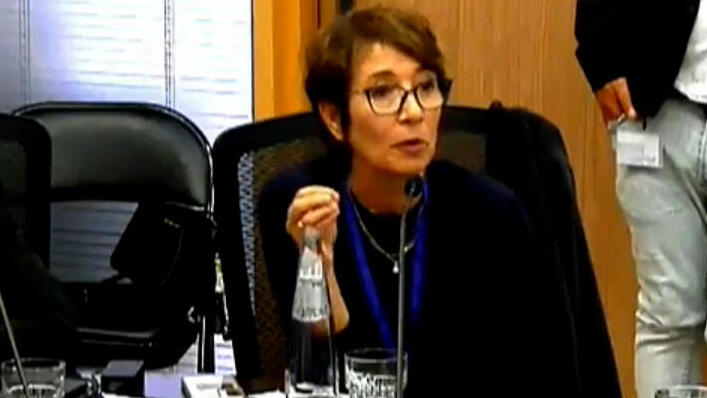Getting your Trinity Audio player ready...
The Knesset Health Committee convened on Monday to discuss the treatment of Hamas rape victims during the October 7 terror attack.
Read more:
Dr. Tzvia Seligman, director of the Trauma Treatment Center for Sexual Assault at Tel Aviv Sourasky Medical Center, addressed the participants with a startling statement: "Do you know how many people have taken their own lives since October 7? Unusually high numbers of suicides. There is a significant loss."
2 View gallery


Women protest against the disregard of Hamas' atrocities and rapes
(Photo: Roi Boshi)
During the discussion, a resident of Sderot named Eliko broke into tears as he shared his experience of past sexual assault. "The victims might commit suicide. I want to save these people, and it is your duty as a country." He called for allocating resources to support these victims and urged them not to dispute them over recognition of their disability.
The Health Ministry has previously refused to release data on suicides since October 7, despite repeated requests from Ynet.
The majority of the speakers in the Knesset discussion called on the government to expand the budgetary allocation for treatment and support systems. The director of the Lotem Center for Treatment of Sexual Trauma spoke about the budgetary constraints and equipment shortages, urging the maintenance of a consistent treatment continuum. "We are treating the victims of October 7 and all war-related trauma victims — women, men, children."
"There's an expectation for numbers, testimonies and information from various sources. Hospitals were asked, 'Were they assaulted or not?' We won't know that for years. People report sexual assaults decades after the fact. They continue to live life as if nothing happened, but it doesn't mean it hasn't ruined their lives or the lives of their children and their environment."
According to her, "For years, I've been treating trauma, and I've never felt what I feel now. We have no budgets, and we need to open more treatment centers, and the crucial thing is a treatment continuum. People need to receive treatment through the system, not just from private individuals."




